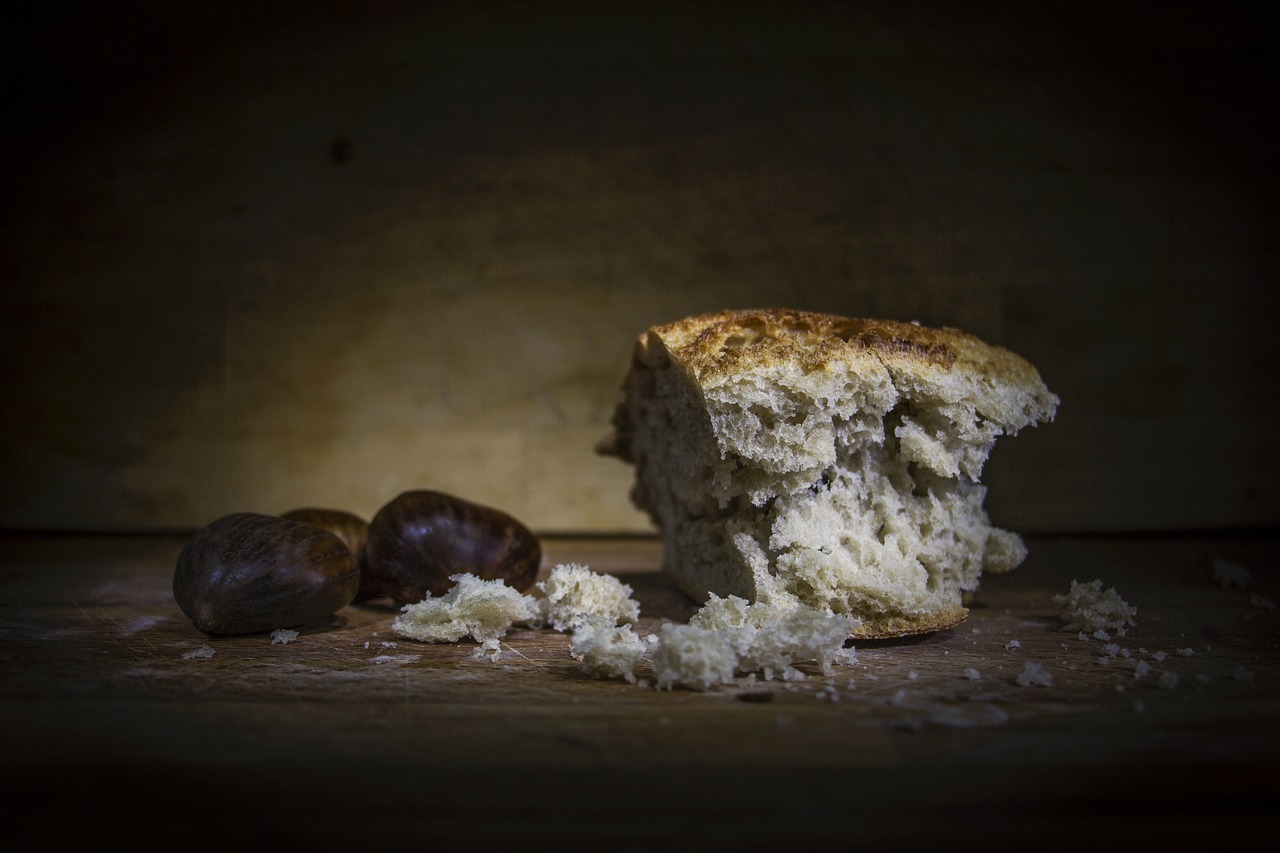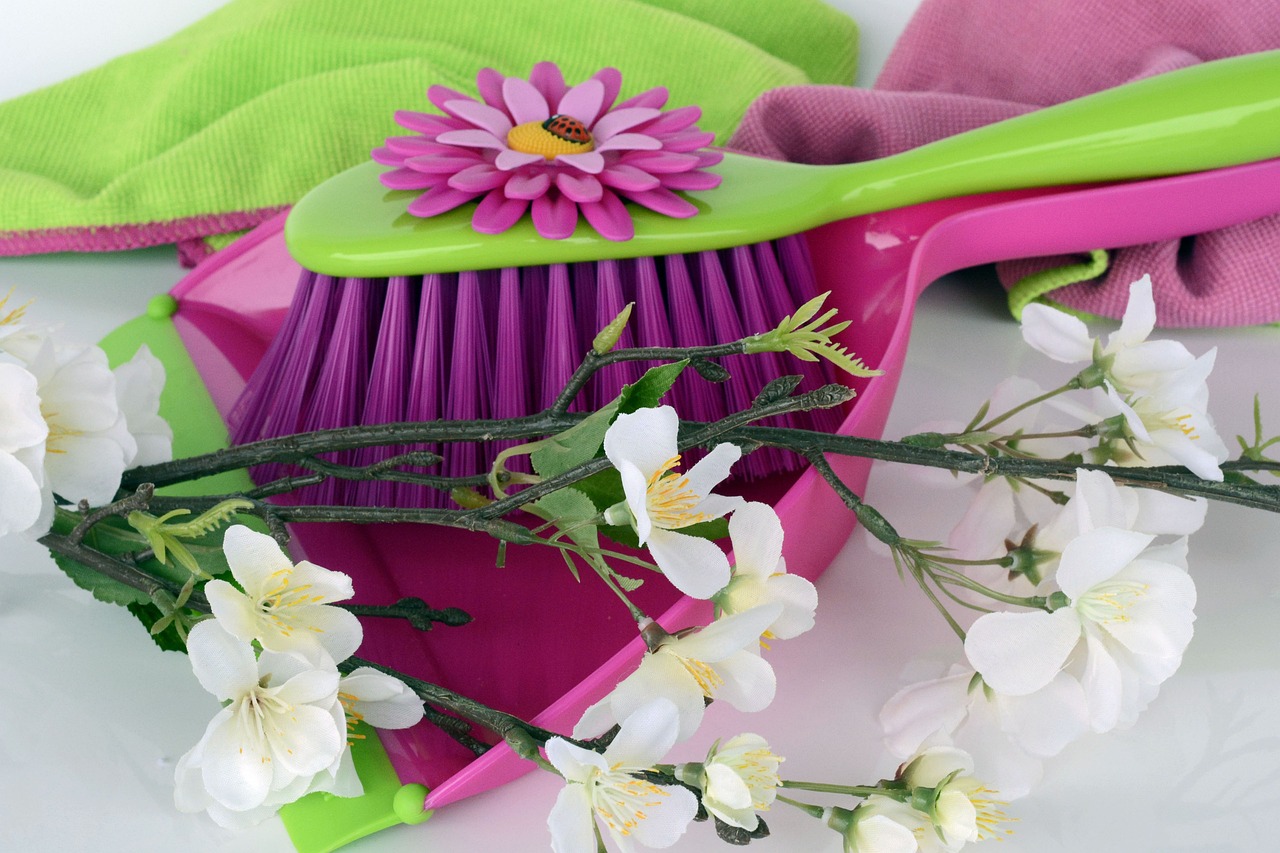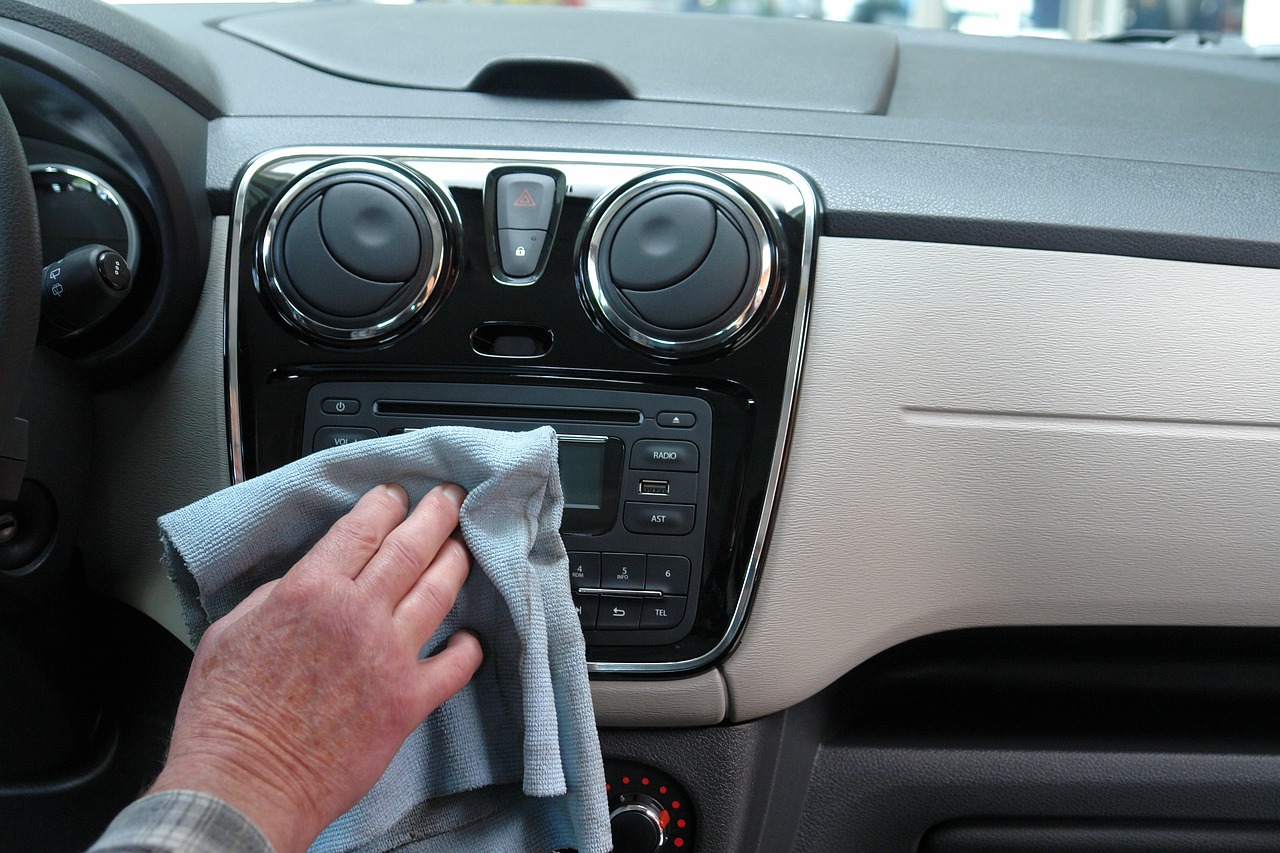How to Make Your Own Homemade Cleaning Wipes
Making your own homemade cleaning wipes can be a rewarding and practical way to keep your home clean and fresh. Not only do they offer a cost-effective alternative to store-bought options, but they also allow you to customize the ingredients to suit your preferences. By following a few simple steps, you can create cleaning wipes that are effective, eco-friendly, and safe for everyday use.

Benefits of Homemade Cleaning Wipes
Homemade cleaning wipes offer a plethora of benefits that make them a superior choice over store-bought options. Firstly, they are cost-effective, allowing you to save money in the long run by creating your cleaning solution using readily available ingredients. Additionally, homemade wipes are eco-friendly, as you can choose natural and biodegradable components, reducing the environmental impact compared to disposable commercial wipes.

Essential Ingredients for Homemade Cleaning Wipes
When it comes to creating your own homemade cleaning wipes, the key to their effectiveness lies in the selection of essential ingredients. These ingredients not only ensure that your wipes are capable of disinfecting and cleaning but also contribute to their eco-friendliness and cost-effectiveness.
One of the primary components you will need is a disinfectant solution. This can be a mixture of water and rubbing alcohol or hydrogen peroxide, known for their ability to kill germs and bacteria effectively. Essential oils such as tea tree oil or lavender oil can also be added to provide a pleasant scent and additional antimicrobial properties.
In addition to the disinfectant solution, reusable cloths are essential for making homemade cleaning wipes. Opt for microfiber cloths or old cotton t-shirts that can be washed and reused, reducing waste and making your cleaning routine more sustainable.

Step-by-Step Guide to Making Homemade Cleaning Wipes
Creating your own homemade cleaning wipes is a simple and rewarding process that can help you keep your home clean and fresh without breaking the bank. By following a step-by-step guide, you can customize the ingredients and scents to suit your preferences and cleaning needs. Let's dive into the process of making homemade cleaning wipes from scratch.
First, gather all the essential ingredients required for making homemade cleaning wipes. You will need disinfectants such as isopropyl alcohol or hydrogen peroxide, essential oils for fragrance and additional cleaning properties, distilled water, and reusable cloths or paper towels for wiping surfaces.
Next, prepare the cleaning solution by mixing the disinfectant, essential oils, and water in the desired proportions. You can use a measuring cup or scale to ensure accuracy in the mixture. Stir the solution well to ensure that all ingredients are properly combined.
Once the cleaning solution is ready, choose a suitable container to store your homemade cleaning wipes. You can repurpose an old plastic or glass container with a lid that seals tightly to prevent the wipes from drying out. Alternatively, you can use a resealable plastic bag for easy access.
Now, place the reusable cloths or paper towels in the container and pour the cleaning solution over them until they are fully saturated. Make sure to distribute the solution evenly to ensure that each wipe is infused with the cleaning properties.
After soaking the cloths, seal the container or bag tightly to prevent evaporation of the solution. Store the homemade cleaning wipes in a cool, dry place away from direct sunlight to maintain their effectiveness and prolong their shelf life.
When ready to use the cleaning wipes, simply pull out a cloth, wring out any excess liquid, and start cleaning surfaces as needed. These homemade cleaning wipes are versatile and can be used on various surfaces such as countertops, appliances, and bathroom fixtures with ease.
By following this step-by-step guide, you can create your own homemade cleaning wipes that are effective, affordable, and environmentally friendly. Experiment with different scents and variations to find the perfect combination that suits your cleaning preferences and leaves your home sparkling clean.

Variations and Customizations
When it comes to making your own homemade cleaning wipes, the possibilities for variations and customizations are endless. You can tailor the ingredients and scents to suit your preferences and cleaning needs, making the process both fun and personal. Whether you prefer a refreshing citrus aroma or a calming lavender scent, essential oils can be added to create a pleasing fragrance while also providing additional cleaning benefits.
For those looking to boost the disinfecting power of their homemade cleaning wipes, incorporating ingredients like vinegar, hydrogen peroxide, or tea tree oil can enhance the solution's antibacterial properties. These natural disinfectants can help kill germs and bacteria effectively without the use of harsh chemicals, providing a safer and eco-friendly cleaning alternative.
Furthermore, you can experiment with different types of reusable cloths or paper towels to find the most suitable material for your homemade cleaning wipes. Microfiber cloths are known for their superior cleaning ability and durability, making them a popular choice for DIY cleaning solutions. By selecting the right cloth, you can ensure efficient cleaning results while reducing waste and promoting sustainability.
When customizing your homemade cleaning wipes, consider adjusting the strength of the disinfectant solution based on the surface you are cleaning. For delicate surfaces like glass or mirrors, a milder solution may be more suitable to prevent streaking or damage. On the other hand, for high-touch areas like kitchen countertops or bathroom fixtures, a stronger disinfectant mixture can provide added protection against harmful pathogens.
Additionally, you can explore various recipes and formulations available online to create specialized cleaning wipes for specific purposes. Whether you need a heavy-duty cleaner for tackling stubborn stains or a gentle solution for sensitive surfaces, there is a wide range of options to choose from. By customizing your homemade cleaning wipes, you can address individual cleaning challenges effectively and efficiently.

Storage and Shelf Life
When it comes to homemade cleaning wipes, proper storage is key to maintaining their effectiveness and prolonging their shelf life. To ensure that your DIY wipes remain potent and ready for use, it is essential to store them in airtight containers or resealable bags. This helps prevent the solution from evaporating and keeps the wipes moist and functional for an extended period.
Additionally, storing your homemade cleaning wipes in a cool, dry place away from direct sunlight can help preserve the integrity of the ingredients and prevent them from breaking down prematurely. Avoid storing the wipes in humid or hot environments, as this can lead to mold growth or reduce the efficacy of the disinfectant solution.
Labeling the containers with the date of preparation can also be beneficial, as it allows you to track the shelf life of the wipes and ensure that you use them within a reasonable timeframe. Typically, homemade cleaning wipes can last anywhere from a few weeks to a few months, depending on the ingredients used and how they are stored.
Remember to check the wipes periodically for any signs of mold, discoloration, or an off smell, as these could indicate that the solution has degraded or become contaminated. If you notice any of these issues, it is best to discard the wipes and prepare a fresh batch to maintain cleanliness and effectiveness.

Usage Tips and Safety Precautions
When it comes to using homemade cleaning wipes, there are a few important tips and safety precautions to keep in mind. Firstly, always wear gloves when handling the cleaning solution to protect your skin from any potential irritation. Additionally, ensure proper ventilation in the area where you are using the wipes to avoid inhaling strong fumes.
It's essential to label your homemade cleaning wipes clearly, especially if you are making different variations for specific surfaces or purposes. This will help you easily identify the right wipes for the job and prevent any mix-ups that could lead to ineffective cleaning results.
When using homemade cleaning wipes on surfaces, test a small inconspicuous area first to ensure compatibility and avoid any damage. Different surfaces may react differently to the cleaning solution, so it's always best to be cautious before proceeding with widespread use.
Dispose of used wipes properly after cleaning to prevent cross-contamination and the spread of germs. Seal them in a plastic bag before throwing them away to contain any potential bacteria or viruses that may have been picked up during cleaning.
Lastly, store your homemade cleaning wipes in a cool, dry place away from direct sunlight to maintain their effectiveness. Proper storage will also help prolong the shelf life of the wipes, ensuring they remain potent and ready for use whenever needed.

Comparison with Commercial Cleaning Wipes
When comparing homemade cleaning wipes with commercial options, several factors come into play. One of the significant aspects to consider is the effectiveness of the cleaning solution. Homemade wipes often contain natural ingredients that may not be as strong as the chemicals found in commercial wipes. While commercial wipes are designed to tackle tough stains and kill a wide range of germs, homemade versions may be gentler but still effective for everyday cleaning tasks.
Cost is another crucial point of comparison. Homemade cleaning wipes are generally more cost-effective in the long run as they can be made using simple and affordable ingredients that are often already available in your household. On the other hand, commercial cleaning wipes can be convenient but may come at a higher price point, especially if used frequently.
Environmental impact is a significant consideration in the comparison between homemade and commercial cleaning wipes. Homemade wipes are usually more eco-friendly as they reduce the use of single-use plastic packaging that is common in commercial products. By using reusable cloths and natural ingredients, homemade cleaning wipes contribute to a more sustainable cleaning routine.
Furthermore, customization options differ between homemade and commercial wipes. While commercial wipes offer a wide range of scents and specific purposes, homemade wipes allow you to tailor the ingredients to your preferences. You can adjust the strength of the disinfectant solution, experiment with various essential oils, and create personalized cleaning wipes that suit your needs and preferences.

DIY Cleaning Wipes for Specific Surfaces
When it comes to cleaning, not all surfaces are created equal. Different materials require specific care to ensure they are properly cleaned and maintained. DIY cleaning wipes tailored to specific surfaces can make this task much more manageable and effective. By using the right ingredients and techniques, you can create wipes that are safe and efficient for cleaning various surfaces around your home.
For glass surfaces, a simple yet effective cleaning solution can be made using a mixture of distilled water, white vinegar, and a few drops of lemon essential oil. This combination not only helps to remove streaks and smudges but also leaves a pleasant citrus scent behind. When using these wipes on glass, remember to buff the surface gently to achieve a sparkling finish.
When it comes to wood surfaces, it's essential to use a gentle cleaning solution to avoid damaging the material. A mixture of olive oil, distilled water, and a touch of liquid Castile soap can be an excellent choice for homemade wood cleaning wipes. The olive oil helps to condition the wood, while the Castile soap effectively cleans away dirt and grime without leaving a residue.
For stainless steel surfaces, a combination of white vinegar and water can work wonders in removing fingerprints and smudges. Adding a few drops of tea tree essential oil to the solution can provide additional antibacterial properties, making these wipes ideal for use in the kitchen or bathroom. Remember to wipe in the direction of the grain to prevent scratching the stainless steel surface.
Each surface in your home has its own unique characteristics and requirements when it comes to cleaning. By customizing your DIY cleaning wipes to suit these specific surfaces, you can ensure that your cleaning routine is not only effective but also safe and environmentally friendly.
Frequently Asked Questions
- Can I use homemade cleaning wipes on all surfaces?
Homemade cleaning wipes are versatile and can be used on various surfaces such as countertops, glass, wood, and stainless steel. However, it is essential to test the wipes on a small inconspicuous area first to ensure compatibility and avoid any damage.
- How long do homemade cleaning wipes last?
The shelf life of homemade cleaning wipes can vary depending on the ingredients used and how they are stored. Typically, they can last for several weeks to a few months if kept in a sealed container in a cool, dry place. It is recommended to make small batches to ensure freshness and effectiveness.
- Are homemade cleaning wipes cost-effective compared to store-bought options?
Yes, homemade cleaning wipes are usually more cost-effective in the long run as you can customize the ingredients based on your preferences and buy them in bulk to save money. Additionally, by reusing washable cloths, you can reduce waste and contribute to a more sustainable cleaning routine.
- Are homemade cleaning wipes safe to use around children and pets?
While homemade cleaning wipes are generally safe to use, it is important to store them out of reach of children and pets to prevent accidental ingestion. Some essential oils and disinfectants used in the wipes may not be suitable for direct contact with skin or ingestion, so it is advisable to follow safety precautions and label the containers properly.



















